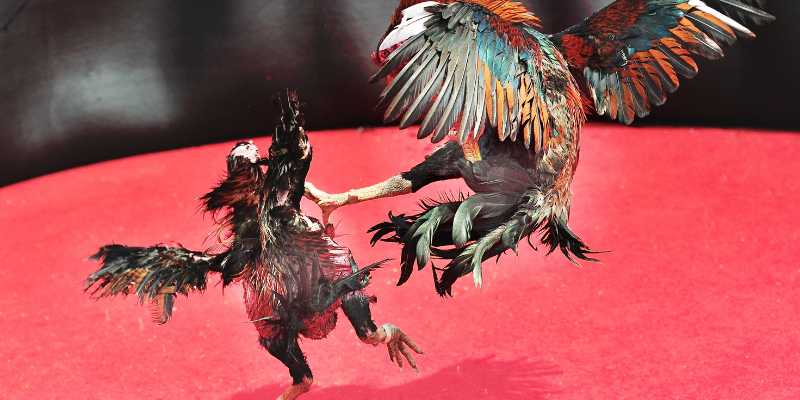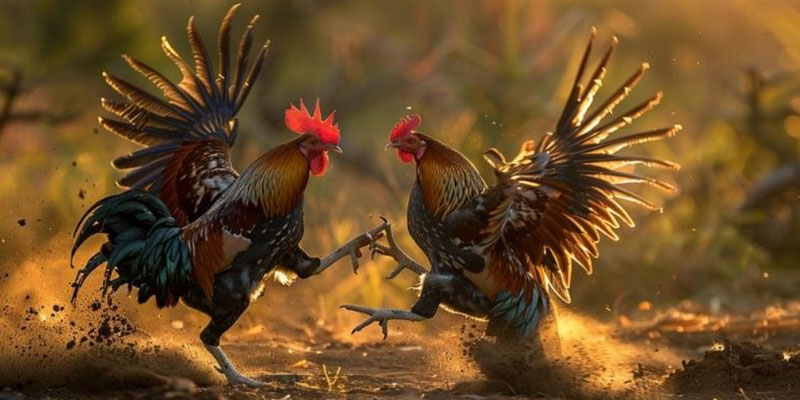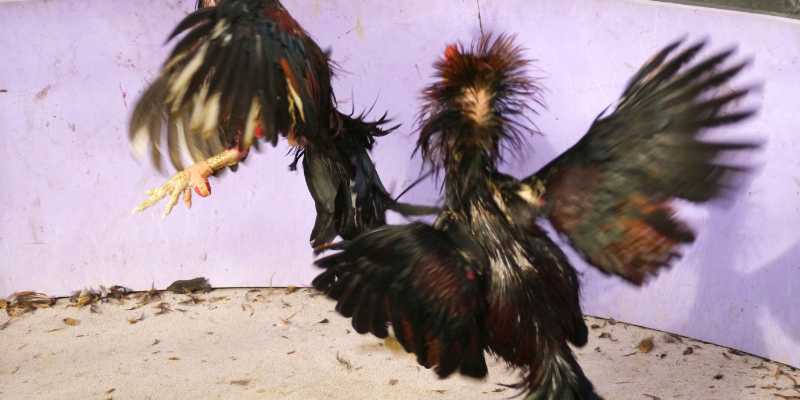Taking care of fighting cocks is an art and a science, requiring a deep understanding of their habits, nutritional needs and how to raise them to grow best. Fighting cocks, with their strength and beauty, are not only pets but also a part of traditional culture in many countries, including Vietnam. In this article, Jun88 will learn in detail about the important aspects of caring for fighting cocks.
History and characteristics of fighting cocks

Fighting cocks are not simply a breed of chickens raised for meat or eggs, but also carry deep cultural values. To take care of fighting cocks effectively, first of all, we need to understand their history and characteristics.
Origin of fighting cock
Gamecocks originated in Southeast Asia and India, where they were selectively bred for their fighting ability and vitality over many generations. Initially, they were raised for competition, but over time they became an integral part of rural culture, symbolizing strength and courage.
With the development of society, fighting cocks are no longer just a means of entertainment, but also a valuable asset. Cockfighting players often spend a lot of time and effort to care for, train and upgrade their chicken breed. This is the reason why taking care of fighting cocks is more important than ever.
Biological characteristics of fighting cocks
Fighting cocks have a very strong body structure, with thick and sturdy feathers, helping them to resist the effects of the weather. In addition, fighting cocks have tall, strong legs, equipped with sharp claws, an important factor when participating in matches. The colors and designs are also very diverse, creating appeal for breeders.
The growth and development of fighting cocks depends on their nutrition and living environment. If they are properly cared for, they can achieve optimal health and have better fighting ability. That is why it is essential to learn and apply appropriate care methods.
Psychology and behavior of fighting cocks
Fighting cocks are not just animals but also have their own psychology and behavior. They are often quite aggressive, especially when facing enemies or in fights. However, this aggression can also be controlled through proper training and care.
In addition, fighting cocks also have a very strong territorial tendency, which means they will protect their living area from intruders. Recognizing and understanding this psychology will help breeders take measures to reduce stress and maintain a comfortable living environment for them.
Nutrition for fighting cocks
Nutrition plays an important role in the care of fighting cocks. A proper diet not only helps fighting cocks grow healthy but also improves their fighting ability.
Essential nutrients
To ensure the health of fighting cocks, breeders need to provide them with all the necessary nutrients such as protein, vitamins, minerals and fat.
Protein is important for muscle growth and immune system health. Protein-rich foods such as beans, bran, and fish meal are great options. Vitamins and minerals from vegetables and fruits are also essential, as they improve overall health and aid digestion.
Fat is also necessary for fighting cocks, but in moderation. Fat provides energy for the body and helps them maintain daily activities. Breeders can add a little vegetable oil to the diet to supplement fat for fighting cocks.
How to feed properly
Feeding fighting cocks must be done scientifically. Feeding time should be regular every day, while avoiding overfeeding or underfeeding, which can affect their health and fighting ability.
You should divide your food intake into several small meals a day, which not only helps the fighting cocks digest easily but also helps them retain energy for future activities. In addition, you should pay attention to changing the water for fighting cocks every day, because water is a decisive factor in their survival.
Natural and artificial foods
Breeders can choose between natural and artificial foods to care for fighting cocks. Natural foods such as corn, rice, fresh vegetables and fruits are very good for the health of fighting cocks. They not only provide nutrition but also help fighting cocks stay active and flexible.
Meanwhile, artificial foods such as industrial bran are also increasingly popular, thanks to their convenience and ability to provide adequate nutrition. However, breeders need to pay attention to choosing bran that ensures quality, staying away from poor quality products that can be harmful to fighting cocks.
Training and health care
Training and health care are two indispensable factors in caring for fighting cocks. To keep them not only healthy but also capable of fighting well, breeders need to invest time and effort in this process.

Fighting cock training process
The training process for fighting cocks begins when they are young, around 2-3 months old. This is an important stage to form the skills and habits necessary for fighting later.
Breeders can start with simple exercises such as jogging, jumping high or lightly fighting with each other. These exercises not only help the fighting cocks develop strength but also train their agility and reflexes.
An important point in training fighting cocks is to be patient and strict. Discipline will help the fighting cocks form a sense of awareness and improve their fighting ability. However, there must also be a rest period to avoid excessive stress.
Health care and disease prevention
The health of fighting cocks is a key factor in determining their fighting ability and longevity. Breeders need to pay special attention to vaccination and disease prevention for fighting cocks.
Common diseases in fighting cocks include avian influenza, Newcastle disease and parasitic worms. Regular vaccination and health check-ups for fighting cocks will help detect health problems early and provide timely intervention.
In addition, the living environment is also an important factor affecting the health of fighting cocks. It is necessary to ensure that the coop is always clean, airy and free of pathogens for the fighting cocks to develop best.
Rest and recovery mode
After intense matches or training, fighting cocks need time to rest and recover. Breeders need to create a quiet, undisturbed space for fighting cocks so they can relax and recover.
Rest time will help the fighting cock to regain strength, recover muscles and improve spirit. This is especially important before big matches, because good recovery will help the fighting cock to achieve the highest performance.
Techniques for raising fighting cocks
Fighting cock raising techniques also contribute significantly to the effective care of fighting cocks. Breeders need to master these techniques to create the most suitable living environment and nutritional regimen for them.
Housing and living environment
The coop is where the fighting cocks live, so it is necessary to ensure that it is clean, airy and safe. The coop should be built from durable materials that can withstand harsh weather conditions. Good ventilation will help prevent suffocation and ensure the health of the fighting cocks.
In addition, it is necessary to create play areas for fighting cocks, where they can run and exercise. This not only helps fighting cocks develop physically but also helps them reduce stress and maintain good spirits.
Breeding method
Choosing the breed of fighting chicken is also very important in taking care of them. Breeders need to choose chickens with good characteristics, healthy and clear origin for breeding.
Breeding also needs to be done scientifically, to ensure not only maintaining good characteristics but also improving the quality of fighting cocks through each generation. Excellent fighting cocks will contribute to enhancing the reputation of the breeder and open up many opportunities in competitions.
Monitor and evaluate development
Monitoring and evaluating the development of fighting cocks is an indispensable part of their care. Breeders need to record information about the weight, height, health status and training progress of each cock.
This not only helps breeders recognize the progress of fighting cocks but also helps detect health problems early. Thereby, breeders can adjust the diet, training and care to be most appropriate.
Conclude
Taking care of fighting cocks is a challenging but also fun job. To be able to raise and train fighting cocks effectively, breeders need to have a solid understanding of nutrition, training and health care for them.
Cockfighting enthusiasts need not only passion but also responsibility and patience. Cockfighting is not only a hobby but also a cultural pride, a symbol of strength and courage. With proper care, cockfighting will grow healthy and become excellent warriors in the ring.
Hopefully this article has provided readers with useful information on caring for fighting cocks, from understanding their characteristics to how to raise, train and care for their health. Let’s join hands to preserve and develop these precious cultural values!
